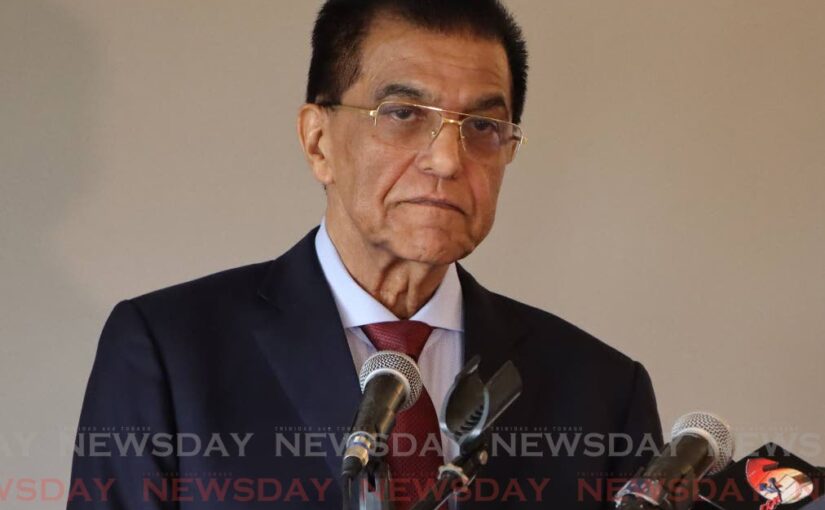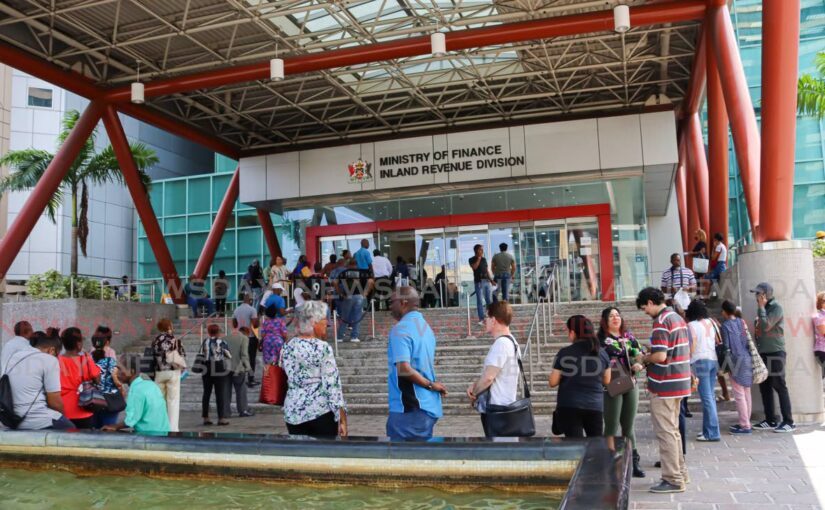Ex-AG responds to Armour’s claims about EMBD’s defence in Junior Sammy lawsuit
 01 November 2024
01 November 2024


Ramesh Lawrence Maharaj -
ATTORNEY Ramesh Lawrence Maharaj, SC, has responded to public comments made by Attorney General Reginald Armour about the Privy Council's ruling in an $80 million lawsuit brought by Junior Sammy Contractors Ltd (JSCL) against the state-owned Estate Management and Business Development Company Ltd (EMBD).
The Privy Council recently instructed EMBD to pay Junior Sammy Contractors Ltd (JSCL) $82.8 million in a civil case over unpaid work.
Speaking at a media briefing on October 30, Armour defended the decision to pursue the appeal all the way to the Privy Council.
“This was not a frivolous appeal by the EMBD. This was a serious appeal. There were serious issues of law to be addressed.”
Armour said EMBD had been prudent and responsible in its approach and denied the company had wasted taxpayers’ money.
>
“In the interest of fairness and prudence, they paid to Junior Sammy what they conceded was his right. And they paid the disputed balance into court to be put into an interest-bearing account, so that at the end of the day when the case was determined, that money would be allocated to the rightful owner. That money with the interest that it has earned, will now be paid over from the court.”
Maharaj later said he disagreed with some of the statements Armour made to the media. He outlined the issues in a three-page statement to the media on October 30.
Maharaj first sought to respond to Armour's earlier assertion that it was valid for the EMBD to argue before the Privy Council that JSCL could not pursue the lawsuit, as it had assigned outstanding disputed payments to ANSA Merchant Bank.
Armour had said, “The Privy Council spent 36 paragraphs examining this issue before it finally construed that the section 23, subsection 7 of the Supreme Court of Judicature act as applied to those documents did not constitute an absolute charge. And therefore Junior Sammy could properly have brought the case against the Privy Council.
“That was what is known to us lawyers and what is accepted by any common sense person as a strong, arguable case. And the EMBD had every right to take that point all the way to the Privy Council and to ask for a ruling on it.”
In response, Maharaj said, “Four judges in TT held the defence did not have any prospect of success and five judges in the JCPC (Judicial Committee of the Privy Council) affirmed what the four judges decided. It was clear therefore that EMBD did not have a defence to this claim for EMBD to pursue this defence either to the Court of Appeal or to the JCPC.”
Maharaj also disagreed with Armour’s statements about the EMBD and fraud against the contractor. He said that while it was correct that at paragraph nine of the judgment, the EMBD admitted that its defence should not be interpreted by the Privy Council as accusing JSCL of fraud, "the Privy Council found that pleading of EMBD of suspicions of fraud ought be read as the company pleading fraud against the contractor."
Referring to Armour’s comments about a significant audit being done by the EMBD, Maharaj said the Privy Council, at paragraph 41 of its judgement, referred to a May 9, 2017 letter in which the EMBD said it received a preliminary report from an audit into the Caroni Savannah Road Residential Site Development Contract and it was sent to the line ministry. That report did not form part of the EMBD's defence.
“The reasonable inference to be drawn is that the preliminary audit report had nothing adverse against the contractor, because if it had any facts adverse to the contractor in that report, EMBD would have pleaded those facts in its defence,” Maharaj said.
>
In addition, in response to Armour's assertion that EMBD paid "the disputed balance into court to be put into an interest-bearing account," Maharaj clarified that the EMBD was in fact ordered by the Court of Appeal to do so.
He said JSCL had submitted to the Court of Appeal that the EMBD did not have any prospects of success in its appeal and had applied for the judgment debt together with the interest be paid into court as security. That application was granted by the court.
Related News

CAL restarts flight from Jamaica to Fort Lauderdale

Property tax payment deadline extended to December 20

Duke calls for audit of Tobago’s October carnival

